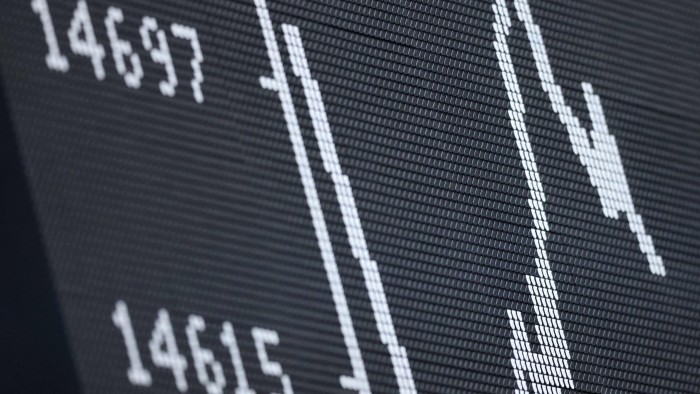Active European funds deliver worst returns in more than 20 years

Roula Khalaf, Editor of the FT, selects her favourite stories in this weekly newsletter.
Latest news on ETFs
Visit our ETF Hub to find out more and to explore our in-depth data and comparison tools
Actively managed equity funds in Europe had their worst year of underperformance for more than two decades in 2022, according to analysts at UBS.
In a research note on European asset managers, the analysts wrote that active equity funds domiciled in Europe generated, in aggregate, -4.13 per cent of alpha last year after management fees, the poorest annual result since their analysis began in 2000. Alpha can be defined as any outperformance, or in this case underperformance, of the market.
The research analysts added that, amid the volatile environment that characterised 2022, they “would have expected active equity managers to have benefited from attractive alpha opportunities”.
The analysts draw a comparison to 2020, the last “volatile equity year”, when alpha generation among active equity managers reached a 20-year high.

This article was previously published by Ignites Europe, a title owned by the FT Group.
In 2022, active equity funds in Europe had their worst spell of performance in the first half of the year, when 96 per cent of the equity fund underperformance was logged, according to the report. Two-thirds of the underperformance came in the first quarter alone.
“We think this was driven by the strong rotation away from growth assets as a higher interest rate environment had a disproportionately large impact on their terminal values,” UBS analysts Michael Werner and Amit Jagadeesh wrote.
They also believe the underperformance can be partly explained by “benchmark selection”, as several funds displayed “a mismatch between their underlying strategy and their primary benchmark index choice”.
The analysts pointed to Morningstar’s UK Equity Mid/Small Cap category, which was the group of funds/product variety to record the lowest level of alpha generation on average in 2022.
The FTSE 250 index “significantly underperformed” the FTSE 100, which benefited from exposure to large-cap banks and commodity-related names, so funds in this category that selected the FTSE All Share as its index suffered from sharp underperformance — minus 11.2 per cent on average — while the funds that opted for a small and mid-cap index recorded average underperformance of 4.4. per cent.
Meanwhile, among fixed income funds, excess returns were negative but “not out of the ordinary”, UBS found.
Latest news on ETFs

Visit the ETF Hub to find out more and to explore our in-depth data and comparison tools helping you to understand everything from performance to ESG ratings
Active fixed income funds underperformed by -0.46 per cent in 2022, which was their worst year for alpha generation since 2018 but “in line” with the average between 2000 and 2022, excluding 2008, the analysts wrote.
The negative alpha for fixed income funds was concentrated in the second quarter of the year, which was mitigated by positive alpha generated in the fourth quarter.
*Ignites Europe is a news service published by FT Specialist for professionals working in the asset management industry. Trials and subscriptions are available at igniteseurope.com.

Comments